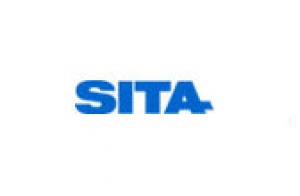20% growth in passenger self-service check-in across six major airport hubs

SITA, the specialist provider of IT solutions to airlines and airports, today said that a major survey of passenger habits at six leading airport hubs across five continents has found 20% growth in adoption of self-service check-in options over the last year and that passengers are demanding improvements in security procedures and airport dwell times as they check-in less baggage.
The survey also found that convenience as much as price is driving on-line booking which is now close to 100% availability in mature markets; 63.7% of those questioned in the survey booked online.
Passengers are also spending more through airline Web sites on ancillary services such as hotels and car hire and their numbers are expected to double. As airlines’ Web sites become the channel of choice for pre-flight and post-flight customer services, over 50% of passengers interviewed are now using airline Web sites to modify reservations or update frequent flyer information.
The 4th annual SITA / Air Transport World Passenger Self-Service (PSS) Survey is an in-depth look at the attitudes and habits of a representative sample of the 232 million passengers who use these six leading international airports: Hartsfield-Jackson, Atlanta; Mumbai International; Charles de Gaulle, Paris; Moscow Domodedovo; Sao Paulo Guarulhos, Brazil; and OR Tambo Airport, Johannesburg. The data is extracted from interviews with 2,193 passengers conducted at the departure gates earlier this year.
The survey found that the top four steps of the journey passengers would most like to change are: security screening, 18.2%; dwell time at the airport before flight departure, 14.8%; in-flight experience, 14.5%; and waiting for checked baggage on arrival, 9.3%.
ADVERTISEMENT
Dominique El Bez, SITA Director, Portfolio Marketing, said: “The survey does provide good news for the air transport industry, and airlines in particular, because it proves that self-service has passed a tipping point in the last 12 months. We have seen a 20% increase in adoption of self-service check-in options across all these hubs. It is also significant that this holds true among transit passengers who exercised the self-service check-in option at over 200 other airports.
“The main obstacles to the further rise of self-service are check-in baggage which is being addressed by the industry through revised bag-drop processes, and the necessity to have access to a printer to acquire a boarding pass through Web check-in. This last issue is being addressed by the industry through adoption of the mobile Bar Code Boarding Pass (BCBP) which will allow a BCBP to be sent from the Web check-in interface to the passenger’s mobile phone. In fact, 66% of the self-service check-in users would prefer an electronic boarding pass.”
El Bez added: “In general, we are also seeing passengers demanding more control of the journey at every step including baggage management, security screening and dwell time in the airport.”
The PSS survey also found that self-service check-in at the world’s busiest airport, Hartsfield-Jackson, Atlanta, reached a record 83.8% in 2009, up from 64% in 2008. This is almost double the global weighted average of 44% across the six airports surveyed which was an increase from 36% the year before.
Web check-in was used by 25.6% of departing passengers at Mumbai International Airport making it by far the most popular self-service option for Indian passengers. Kiosk check-in is still the most popular self-service user option at Atlanta (45.8%), Paris (18.9%) and Johannesburg (8.1%) while Web check-in proved the most popular option with passengers in Moscow (9.2%) and Sao Paulo (6.4%).
Overall there is a very positive attitude among passengers towards the future use of kiosk check-in (75%) and Web check-in (62.5%) while 44% of passengers are positive towards mobile check-in.
Baggage
The proportion of passengers checking in baggage has decreased from 82% in 2007 and 2008, to 75.7% in 2009. The trend is especially noticeable in locations where airlines are charging passengers extra for baggage. At the same time, passengers are prepared to pay for remote baggage check-in services.
Asked what passengers associate with a pleasant trip, the arrival of check-in baggage promptly and safely has dropped from second place to fourth place behind: no delays, friendly ground staff and short queues. It also comes fourth in the passengers’ wish list for improvements.
Security
Passengers are ready to give confidential data in order to get through the airport faster. There is 57.8% positive attitude towards registering with automated border control and security programmes compared to 48.7% in 2007.
62% of passengers would like to see shorter queues and security screening was the most chosen option when asked which step of the journey passengers would most like to change.
Airport dwell time
A significant portion of those interviewed (14.8%) would like to improve most their dwell time experience at airports. Those passengers would like to see the following options available in the airport before flight departure: improved Internet access capabilities, (45.8%); access to entertainment on demand from my cell-phone, (15.6%); digital shopping assistant to find quickly what is interesting to me in the duty free shop, (13%).
Going mobile
Mobile phone check-in is still at its infancy, representing 1.8% of the check-in transactions across the six airports surveyed. There is an almost 45% positive attitude towards future use of mobile check-in and other SITA research shows that 80% of airlines are planning to offer mobile check-in capability by 2012.
The PSS survey found that 26% of travellers now carry a smart phone, twice more than in 2008. Mobile services are set to become a channel of choice for passenger services, complementing existing self-service options (kiosk and web check-in).
Passengers flying on more than 100 different airlines and representing over 80 different nationalities were interviewed during April/June 2009 in this independent survey.

